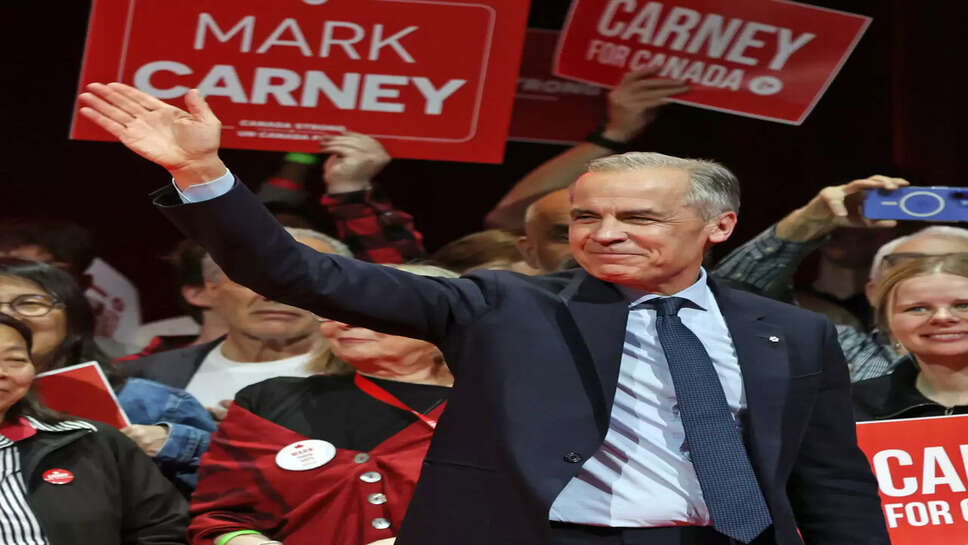Trump’s Tariff Hike Sparks Diplomatic Tensions, Canada Voices Regret

In a move that has reignited trade tensions across North America, former U.S. President Donald Trump’s announcement of a fresh tariff hike on key imports — including steel, aluminum, and select agricultural products — has drawn a sharp yet measured response from Canadian Prime Minister Justin Trudeau, who called the decision “deeply disappointing.”
The new tariffs, set to be implemented in the coming weeks, mark another aggressive step in Trump’s increasingly protectionist economic rhetoric, particularly aimed at reviving domestic manufacturing and curbing reliance on foreign goods. While much of his focus remains on China and Mexico, the inclusion of Canada — one of America’s closest allies and top trading partners — has raised both eyebrows and alarms in Ottawa.
Reviving Old Tensions
This isn’t the first time a Trump-led administration has imposed tariffs on Canada. During his previous term, Trump had levied duties on Canadian steel and aluminum under the pretext of national security — a move that was widely criticized by Canadian officials and retaliated against with countermeasures. Those tariffs were eventually rolled back after negotiations and pressure from business communities on both sides of the border.
Now, with Trump once again taking an assertive trade stance in the run-up to the U.S. presidential elections, Canada finds itself in a familiar position, seeking to defend its economic interests while maintaining diplomatic restraint.
Trudeau’s Calculated Response
Speaking at a press conference in Ottawa, Prime Minister Trudeau refrained from launching a full-scale verbal counterattack but made his displeasure known.
“We are deeply disappointed by this decision,” he said. “Canada has always been a fair trading partner and has stood by the principles of open, rules-based trade. Measures like these hurt workers and businesses on both sides of the border.”
Trudeau emphasized the importance of economic cooperation and mutual growth, noting that Canada and the U.S. share the world’s longest undefended border and one of its most integrated trade relationships.
His tone was one of controlled frustration — aware of the need to avoid escalating tensions, while making it clear that Canada would consider all appropriate responses in consultation with stakeholders and international trade frameworks.
Economic Stakes for Both Countries
The United States is Canada’s largest export market, with bilateral trade in goods and services exceeding $700 billion annually. Canadian industries — particularly in metals, lumber, and auto parts — rely heavily on access to U.S. markets. A sudden tariff hike not only threatens revenue streams but also disrupts tightly linked cross-border supply chains.
Experts warn that retaliatory tariffs or disrupted trade flows could also impact American industries that depend on Canadian raw materials and intermediate goods. For example, U.S. car manufacturers rely on Canadian aluminum, and construction firms benefit from the steady flow of lumber.
A Political Move?
While details of the exact tariff rates and affected goods are still emerging, many analysts believe the move is politically motivated. Trump has made it clear in recent rallies and interviews that he intends to “punish countries that take advantage of American workers.” His campaign has focused on reshoring jobs, rebuilding U.S. manufacturing, and promoting economic nationalism — themes that resonate with his base in the Rust Belt and other industrial regions.
However, critics point out that targeting Canada — a country with whom the U.S. shares the United States–Mexico–Canada Agreement (USMCA) — undermines the very trade pacts the Trump administration once negotiated to replace NAFTA.
“It’s not just about economics anymore. It’s about optics and ideology,” said a Toronto-based trade analyst. “Trump’s message is simple: American jobs first, no matter the cost. But that kind of approach could lead to unintended fallout, especially with allies.”
Industry Response in Canada
Canadian business leaders were quick to voice concern. The Canadian Chamber of Commerce issued a statement warning that the tariffs could “destabilize markets, drive up prices, and reduce competitiveness for North American businesses.” The auto and aerospace sectors, already navigating post-pandemic recovery and global supply disruptions, are expected to be among the hardest hit.
In regions like Ontario and Quebec, which are manufacturing hubs, local officials have demanded swift federal action to protect jobs and investment. Labor unions too have echoed the Prime Minister’s disappointment, emphasizing the need to keep trade predictable and fair.
What’s Next for Canada?
Canada’s immediate options may include:
-
Engaging through USMCA dispute resolution mechanisms
-
Appealing to the World Trade Organization (WTO) if the tariffs violate international trade norms
-
Imposing targeted retaliatory tariffs to exert pressure without sparking a trade war
However, any retaliatory measure will be weighed carefully. With U.S. elections nearing and the possibility of Trump returning to office, Ottawa may avoid aggressive moves that could lead to long-term diplomatic strain.
Behind the scenes, Canadian diplomats and trade negotiators are expected to lobby U.S. lawmakers, governors, and industry stakeholders who understand the mutual value of free trade with Canada.
The Bigger Picture: Trade in the 2020s
Trump’s latest tariff move underscores a broader global shift towards economic protectionism, as countries re-evaluate global supply chains, national resilience, and trade dependencies post-pandemic. The era of unbridled globalization is making way for "strategic decoupling" and "economic sovereignty" — buzzwords that are shaping policy across the board.
For Canada, this means doubling down on trade diversification — strengthening ties with Europe (through CETA), the Asia-Pacific (through CPTPP), and emerging markets — while still preserving the vital but volatile relationship with its southern neighbour.
Disappointment Laced with Determination
Justin Trudeau’s statement of disappointment may seem restrained, but it carries the weight of a country unwilling to be treated as collateral damage in another country’s domestic political strategy. Canada’s response will likely be measured, rules-based, and strategic — focused on defending its economic interests while avoiding a breakdown in one of the world's most critical bilateral relationships.
As one senior Canadian official put it off the record: “We’ve dealt with this before. We’ll deal with it again. But let’s be clear — disappointment doesn’t mean weakness.”
